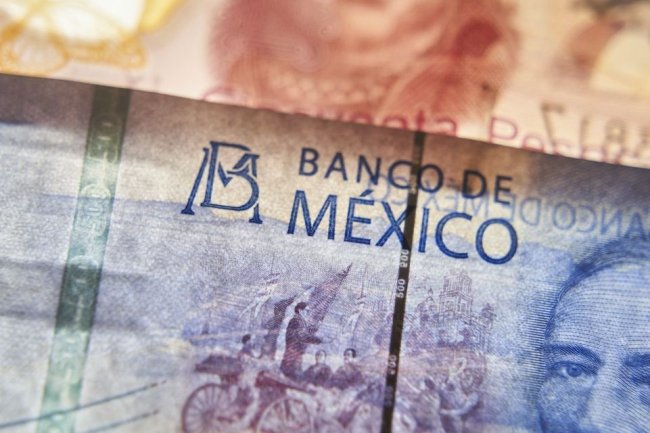Beijing Rushes to Shore Up Battered Private Economy. Skepticism Abounds.
China vows to promote a private sector wobbly from years of regulatory crackdowns and pandemic controls, but investors aren’t convinced A job fair in Chongqing. China’s efforts to rekindle the private sector risks exacerbating youth unemployment Photo: Agence France-Presse/Getty Images By Stella Yifan Xie in Hong Kong and Raffaele Huang in Singapore July 21, 2023 8:32 am ET China’s leadership is lavishing the country’s beleaguered private sector with a sweeping show of support as a nascent economic recovery falters. But grand declarations and rhetoric alone won’t suffice, say economists and investors. Sluggish domestic demand and a widely held view that Beijing still favors its state-owned enterprises mean that sentiment among the private busi


A job fair in Chongqing. China’s efforts to rekindle the private sector risks exacerbating youth unemployment
Photo: Agence France-Presse/Getty Images
China’s leadership is lavishing the country’s beleaguered private sector with a sweeping show of support as a nascent economic recovery falters.
But grand declarations and rhetoric alone won’t suffice, say economists and investors. Sluggish domestic demand and a widely held view that Beijing still favors its state-owned enterprises mean that sentiment among the private business owners—a group that accounts for most of the economy’s dynamism and hiring—isn’t likely to turn around, at least not in the near term.
In a high-profile pronouncement this week, China’s Communist Party and the country’s cabinet jointly unveiled a list of more than 30 guidelines vowing to make the private sector “bigger, better and stronger.” Authorities said the measures would level the playing field between privately-run and state-owned enterprises, promising to break down market barriers, expand financing for privately held companies and engage them in future policy consultations.
Beijing’s outreach to the private sector—a segment that contributes about 60% of China’s total output and 80% of urban employment—comes as growth in the world’s second-largest economy is decelerating on multiple fronts. It also marks a reprieve from the previous three years, in which Chinese officials decimated industries including after-school education and property with a series of regulatory crackdowns and strict limits.

A truck production line in Xian. China’s leadership has rolled out incentives to boost vehicle sales.
Photo: FLORENCE LO/REUTERS
The measures, unveiled on Wednesday, drew public praise from several prominent entrepreneurs such as Tencent Holdings ’ low-profile co-founder Pony Ma. The videogame and social media titan and other major internet companies have seen their business and profits pummeled by Beijing’s sudden changes in regulation in the last two years.
Over the past few weeks, Chinese officials have showered investors and the business community with attention and public promises to buttress the sector. China’s Premier Li Qiang met with executives from the country’s biggest tech companies including Alibaba Group Holding and TikTok parent ByteDance, encouraging them to support the economy through innovation.
Officials also met local business leaders in the manufacturing and consumption sectors to survey the difficulties they face, and held meetings to reassure business associations from the U.S., Europe and Japan that the country remains open for foreign investment. They also rolled out incentives to boost vehicle sales.
Such support comes after China’s internet companies lost over $1 trillion in market value since late 2020, when authorities scrapped fintech giant Ant Group’s blockbuster initial public offering, kicking off a series of regulatory crackdowns. Government raids on global consultancies including Bain & Co. this year, as well as an expanded version of anti-espionage law have also dampened animal spirits in the business community.
Despite this, economists and private entrepreneurs interviewed by The Wall Street Journal say that three years of strict control of Covid-19 and concurrent regulatory campaigns have taken its toll. The recent purges in China’s internet and private tutoring industry have left entrepreneurs wary of unexpectedly falling afoul of the Communist Party’s social goals, said George Magnus, research associate at Oxford University and former chief economist at UBS.
“The overall attitude toward the private sector is still one where they are subordinate to the interest of the state,” he said.
Much of the caution among private business and investors also reflects long-term economic headwinds such as the country’s shrinking population as well as elevated local government and household debt.

A construction site in Zhejiang province. Ongoing pains in China’s housing market could worsen investor sentiment.
Photo: hector retamal/Agence France-Presse/Getty Images
The private-sector’s share of China’s 100 largest listed companies by market value dropped from a peak of 55% in mid 2021 to 39% this June, close to its lowest levels in more than three years, according to a forthcoming research report by the Washington, D.C.-based think tank Peterson Institute for International Economics, or PIIE.
Private sector investment shrank by 0.2% in the first half of 2023 from a year earlier, the first contraction since official data collection began in 2005, with the exception of 2020, when the economy was racked by the pandemic. In contrast, investment by state-controlled firms expanded 8.1% in the same period.
Profits at private sector firms, more exposed to falling exports and weak consumer spending, reported a 21% plunge in the first five months of the year. Profits at state-owned enterprises fell 17.7%.
Ongoing pains in China’s housing market could worsen investor sentiment. Investment by real-estate developers likely accounts for roughly one-third of private investment, according to Tianlei Huang, a research fellow at PIIE.
The stakes are high for Beijing to rekindle business confidence. A failure to resuscitate the ailing private sector risks pushing Beijing’s full-year growth target of around 5% further out of reach. It may also exacerbate already high youth unemployment.
For years, private firms, in particular those in the technology, education and property sectors, have absorbed a large share of China’s college graduates.
Analysts say years of regulatory tightening in those sectors and ongoing distress in the real-estate market have dried up career opportunities for young professionals, helping push China’s youth jobless rate to a record of 21.3% in June.
In the longer run, the private sector’s retreat would reduce overall efficiency and lead to slower productivity growth, consequences that could ultimately suppress China’s growth potential, economists say.
Zhang Xuan, a Beijing-based partner of a private-equity firm focusing on technology investment said Beijing’s most recent pledge on supporting the private sector sent a positive message to investors, but hasn’t reassured him about containing a broader economic downturn.
“The long-term performance of the market can’t simply be governed by a couple policy documents,” he said.
—Xiao Xiao in Beijing contributed to this article.
Write to Stella Yifan Xie at [email protected] and Raffaele Huang at [email protected]
What's Your Reaction?













